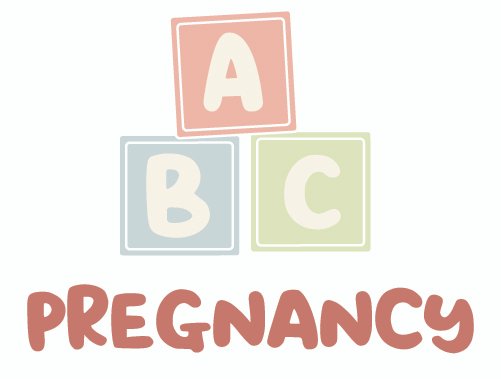Congratulations! You’re bringing a little human into the world, which is exciting, magical…and expensive. Babies don’t come with price tags, but trust us, they might as well! From nursery decor to diapers, the costs can add up faster than your cravings for pickles and ice cream. But don’t worry—with a bit of planning, you can manage your finances and budget. Here’s everything you need to know about handling money during pregnancy.
Why Budgeting is Important
Let’s start with the obvious: babies are adorable, but they’re not cheap. The U.S. Department of Agriculture estimates that raising a child costs around $13,000 a year for middle-income families. And the expenses start before your baby even arrives. Having a clear budget can reduce financial stress and let you focus on what matters most—welcoming your baby into a loving, prepared home.
Breaking Down Pregnancy Costs
Before we jump into budgeting tips, let’s talk numbers. Knowing what to expect will help you set realistic financial goals.
1. Medical Expenses
-
Prenatal Care: Regular doctor visits can cost $100–$200 each without insurance.
-
Ultrasounds: $200–$1,000 depending on your location and provider.
-
Labor and Delivery: A vaginal delivery costs $10,000–$35,000 on average, while a C-section can be $15,000–$40,000.
With insurance, your out-of-pocket costs depend on your deductible, co-pays, and out-of-pocket maximum. Without insurance, buckle up for a hefty bill—but we’ll discuss ways to handle that later.
2. Baby Gear
-
Crib and Mattress: $200–$400
-
Car Seat: $100–$300 (a must-have before leaving the hospital!)
-
Stroller: $100–$1,000 (depending on whether you want the Cadillac of strollers or something simpler).
-
Clothes and Diapers: $50–$200 per month just for the basics.
3. Miscellaneous Costs
-
Prenatal Classes: $50–$300
-
Maternity Clothes: $100–$600
-
Babyproofing Supplies: $50–$200
Building a Pregnancy Budget
Now that you have a general idea of costs, it’s time to create a budget. Here’s how:
Step 1: Calculate Your Income
Start by listing all sources of income, including salaries, side gigs, and any financial support you’re receiving. Knowing how much money you’re working with is the foundation of any good budget.
Step 2: List Your Expenses
Divide your expenses into two categories:
-
Fixed Expenses: Rent/mortgage, insurance, car payments, etc.
-
Variable Expenses: Groceries, utilities, and entertainment.
Add a new category for pregnancy-related costs, including medical bills, baby gear, and maternity clothes.
Step 3: Prioritize Savings
Pregnancy is unpredictable. Start building an emergency fund if you don’t already have one. Aim for 3–6 months’ worth of living expenses. The emergency fund is money NOT already budgeted to pay for hospital bills and baby supplies. It’s also a good idea to save for maternity leave if your employer doesn’t offer paid time off.
Step 4: Track and Adjust
Use a budgeting app or a simple spreadsheet to track your spending. Adjust as needed to stay on track. If you overspend one month, tighten the belt the next. We will be creating a couple of videos on this, in the near future. The videos will cover creating a spreadsheet as well as budgeting.
Money-Saving Tips for Expecting Parents
Budgeting doesn’t mean giving up all the fun. It’s about being smart with your money. Here are some ways to save:
1. Buy Secondhand
Babies grow faster than weeds in springtime. Look for gently used items like clothes, cribs, and strollers at thrift stores, online marketplaces, garage sales, or from friends. Just make sure items like car seats meet safety standards and clean everything! You have no idea what germs you are bringing home, when dealing with second hand items.
2. Create a Registry
Your baby shower is the perfect opportunity to get help with the essentials. Create a registry with items you really need, like diapers, a car seat, and a crib. Don’t be shy about asking for practical gifts.
3. DIY When Possible
From nursery decor to baby food (when the time comes), DIY projects can save money and add a personal touch. Plus, crafting can be a great way to de-stress.
4. Plan for Medical Bills
Talk to your hospital about payment plans. Many offer zero-interest options, which can make big bills more manageable. Also, review every medical bill for errors—it happens more often than you’d think.
What If Money’s Tight?
If your finances are stretched thin, don’t panic. You have options:
1. Government Assistance
Programs like Medicaid and WIC (Women, Infants, and Children) can provide financial help for medical expenses, food, and baby supplies.
2. Community Resources
Local nonprofits, churches, and pregnancy centers often offer free or discounted baby gear and classes. Some even provide financial counseling.
3. Family and Friends
If you’re comfortable, let close family or friends know you need help. Many people are happy to lend a hand, whether it’s through hand-me-downs or covering a meal or two.
Fun Facts About Babies and Money
-
Diaper Math: The average baby goes through 2,500–3,000 diapers in their first year. That’s enough to wallpaper your living room…and maybe the kitchen too.
-
Cost of Crying: A baby’s cry can wake you up at 2 a.m. and send you to Amazon for a miracle gadget. Budget for those sleep-deprived impulse buys!
-
Baby Inflation: Prices for baby gear have skyrocketed in the last decade. But remember, babies don’t care if their stroller is name-brand or a hand-me-down.
Preparing for the Future
Budgeting doesn’t stop once the baby arrives. Here are a few things to consider:
1. Life Insurance
If you don’t have life insurance, now’s the time to get it. It ensures your child is financially protected in case anything happens to you.
2. College Savings
It might seem early, but starting a 529 college savings plan can give your child a big head start.
3. Reevaluate Your Budget
Your financial needs will change once the baby arrives. Be ready to adjust your budget to include new expenses, like daycare or increased grocery bills.
Laugh Through the Chaos
Yes, pregnancy can be expensive and stressful, but it’s also filled with joy, laughter, and unforgettable moments. Approach budgeting with a sense of humor. After all, some of the best things in life—like baby giggles—are free.

